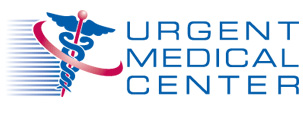
How Your Heart Works
Your heart is a four-chamber muscular pump. The top two chambers are collectively known as the atria, and the two bottom chambers are collectively known as ventricles. Your body naturally produces an electrical charge strong enough to cause the heart muscle to contract. During this contraction, blood is pumped through the rest of the body. When the electrical charge produced by your body becomes weak or off, it can greatly impact your overall health and prevent adequate blood supply from pumping through the body.
Who Needs An EKG?
If you are experiencing any symptoms associated with heart problems, you may need an EKG to see if there is an underlying problem. Some signs and symptoms that warrant the need for an EKG include:
- Chest pains
- You notice your heart pounding, racing or beating at uneven rhythms
- You are experiencing breathing problems
- You feel unusually tired and weak
- Your doctor notices your heart doesn’t sound quite right
An EKG is often included in a normal physical exam. The key to staying healthy is preventing any major problems from getting out of hand, and the best way to do this is to catch any issues from the get-go.
EKGs also screen for signs of early heart disease. You are more prone to heart disease if someone in your immediate family, such as your mother, father, brother or sister had/has it, especially if they developed it early in life.
If you have a pacemaker or similar device, or if you currently take heart medication, you may require regular EKGs in order to ensure everything is working properly. You may also need screening prior to undergoing any major surgery.
It is especially important to get an EKG if you suffer from high blood pressure, diabetes, high cholesterol, have heart disease in your family history, or if you are a smoker.
What Does EKG Reveal?
There are a number of things EKG is able to check for, including:
- Your heart’s electrical pulse
- Pinpoint the cause of unexplainable chest pain or pressure.
- If you are experiencing symptoms of heart disease, a scan may detect the cause of things like breathing problems, fainting or dizzy spells.
- Detect thickness of the walls lining the heart chambers; you don’t want them to be too thick.
- Identify if medications you are currently taking are helping, as well as if other medications you may be taking are negatively impacting your heart in any way.
- Make sure that pacemakers, and any other medical devices implanted to control the beat of your heart are in good working order.
What Happens During EKG Test?
The process is very simple and our staff will you walk through every step of the way. Make sure to tell the doctor all medications you take prior to the day of your test, this way you can be instructed on how to take your medications the day of.
You will not wear any jewelry during the process. Men typically go in bare-chested; women generally wear a bra, t-shirt or hospital gown. You lie down on a flat medical bed. Several electrodes are safely attached to your skin along your arms, legs and chest.
These electrodes are connected to a machine that electronically tracks your heart activity. All you have to do is lie still and relax. At certain points of the test you may be asked to hold your breath for a short time. After everything is all set up, the test only takes between 5 and 10 minutes.
Since no electricity passes from the machine through your body there is no risk of electrical shock. It is 100% safe to get an EKG, and in almost all cases there is no reason to avoid one.
What Is A Normal EKG Reading?
The average healthy heart beats between 60 and 100 times per minute. An abnormal heart beats either too slow or too fast. Heartbeats under 60 beats per minute are considered slow, and over 100 beats per minute are considered fast. Regardless if your heartbeat is too slow or too fast, it is still considered an abnormal heartbeat and may require further testing and treatment.
Schedule an appointment online for an EKG at Urgent Medical Center: Web Check In




